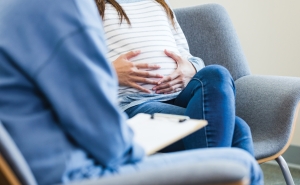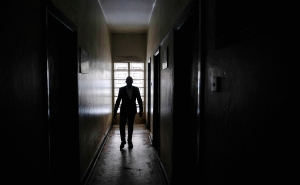Most Americans Support Common-Sense Gun Laws—So Why Don’t We Have Them?
A dedicated and vocal group is leading the opposition to common-sense gun policy.

Common-sense gun laws, such as universal background checks and extreme risk protection orders (ERPOs), continue to stall in Congress and struggle to pass in many states—even though most Americans support these policies: 72% support universal background checks, and about 76% support ERPOs.
So why is gun policy so out of step with the preferences of most Americans?
Silvia Villarreal, MPP, director of research translation at the Johns Hopkins Center for Gun Violence Solutions, says that today, the support of the majority of the population, including most gun owners, is being drowned out by a highly organized and committed group spurred by a powerful gun lobby that perpetuates the myths that owning guns makes people safer and that common-sense gun laws threaten Second Amendment rights.
More Guns, Fewer Owners
The number of guns circulating in the U.S. has steadily increased in recent decades. In 1993, 7.7 million firearms were produced in the U.S.—a record at the time; that number reached 19.8 million in 2022, a dip from the height of the COVID-19 pandemic in 2021, which saw 22.5 million firearms produced. But the proportion of Americans who own guns has declined. Villarreal points to a report from the Violence Policy Center showing that 24.5% of Americans reported personally owning a gun in 2021, compared to 30.5% in 1985.
But those who do own guns, own more of them. According to a 2017 Pew Research Center survey, 66% of gun owners say they own more than one gun, including 29% who own five or more. Another 2017 report, from the Russell Sage Foundation, estimated that about half of the 265 million privately owned firearms in the U.S. are owned by 3% of the adult population. Eight percent of those gun owners own 10 or more firearms, and their collections make up some 40% of the total country’s gun stock.
Not Just Numbers, But Intensity
That small proportion of Americans who own the lion’s share of guns make up a powerful voting bloc.
Many gun owners view firearms as a key part of their identity, and cast their votes based on that issue alone, says Villareal.“Lobby groups and the gun industry have a really powerful way to organize people to vote on these issues,” by perpetuating the ideas that gun policies threaten Second Amendment rights and that guns make people safer. “There's a very organized group supported by a powerful gun lobby that shifts how elections turn out,” says Villarreal.
Why Americans Buy Guns: A Shifting Landscape
Research shows that owning guns does not make people safer. Rather, access to firearms in the household doubles the risk of homicide and increases the odds of suicide more than three-fold. Nevertheless, two-thirds of American gun owners cite protection from people as their top reason for owning a firearm.
It hasn’t always been this way. Fifty years ago, outdoor activities and hunting were the dominant reason for gun ownership in the U.S. But in recent decades, that has changed, possibly driven by a “a cultural shift in the perception of hunting and animal rights,” explains Villarreal.
The National Rifle Association, the most powerful gun rights lobbying group in the country, was originally founded to support sports gun and hunting culture. But as hunting became less popular, the gun lobby took another tack to sell guns: emphasizing their use for protection and “making the Second Amendment their focus, billing gun ownership as a right for people anywhere and everywhere,” says Villarreal.
The approach has worked. While there is ample evidence to show that policies like safe storage, extreme risk protection orders, and firearm purchaser licensing reduce homicides and suicides, they face opposition to make it into state laws—largely because the gun lobby funds candidates who support their positions.
Annalies Winny is a writer and producer in the Office of External Affairs at the Johns Hopkins Bloomberg School of Public Health.




